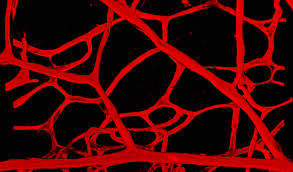 As Vascular Nurses Week comes to a close, the impact of the work vascular nurses perform each day is clear. Vascular nurses work with patients who have vascular disease or who may be at high risk for vascular diseases including everything from blood clots to high blood pressure and other cardiovascular disease to circulation problems.
As Vascular Nurses Week comes to a close, the impact of the work vascular nurses perform each day is clear. Vascular nurses work with patients who have vascular disease or who may be at high risk for vascular diseases including everything from blood clots to high blood pressure and other cardiovascular disease to circulation problems.
Patients depend on nurses in this specialty to help them treat and manage their diseases and so will turn to them for education about how to recover from surgery from having a stent or how to manage high blood pressure or peripheral vascular disease. Vascular nurses are also excellent sources of information on how to live with chronic conditions such as varicose veins. For patients whose family history shows a strong genetic predisposition to vascular disease, a vascular nurse will work with the patient’s team to help educate them about medication and surgical options, lifestyle changes and choices, and even symptoms to be especially mindful of.
As a career, vascular nursing offers extensive options and nurses can find the career track that fits their interests, pace, and preferred schedule. Nurses who choose to work in this specialty will see a range of patient ages and conditions, and they have the ability to focus in on specific populations with the choice of work location and setting. Nurses can work in hospital settings where they may assist with surgery, lead patient preparation and recovery from procedures, and be on the medical team with emergency situations. Vascular nurses can also work in outpatient settings and clinics where they will see patients who are coming for routine blood work, post-surgical care, and scans to help diagnose or monitor any problems. Other options can include home care.
These nurses work with a complex network of veins and systems that can change quickly. They need to be current in all the latest evidence-based practices so they can treat patients with the most current knowledge and also let them know about potential treatment options that are on the horizon.
As with other nursing specialties, career choices such as membership in a professional association is especially beneficial. Nurses can look into all the resources the Society for Vascular Nursing offers including mentorship options, patient resources, and conferences. Many nurses use annual conferences as a way to connect with other nurses all across the country and to learn about new developments in their specialty. They can bring those ideas and the energy from the conference back to propose potential improvements in their own workplaces.
For continuing knowledge, obtaining certification is an excellent career move. the Society for Vascular Nursing (SVN) and the American Nurses Credentialing Center (ANCC) offer the Cardiac Vascular Nursing Certification (CV-BC) which gives nurses the professional knowledge and recognition of expertise in the field.
Vascular nursing requires nurses who are dedicated to patient care, lifelong learning, and who have a passion for helping patients live the healthiest lives possible. Rates of vascular diseases continue to rise and the industry needs more nurses in this specialty, so the job outlook remains strong.
- A Camp Nurse Volunteer Shares the Joy - April 30, 2024
- Is the FNP Program Right for You? - April 24, 2024
- WOC Nurses Week Highlights Specialty - April 16, 2024


